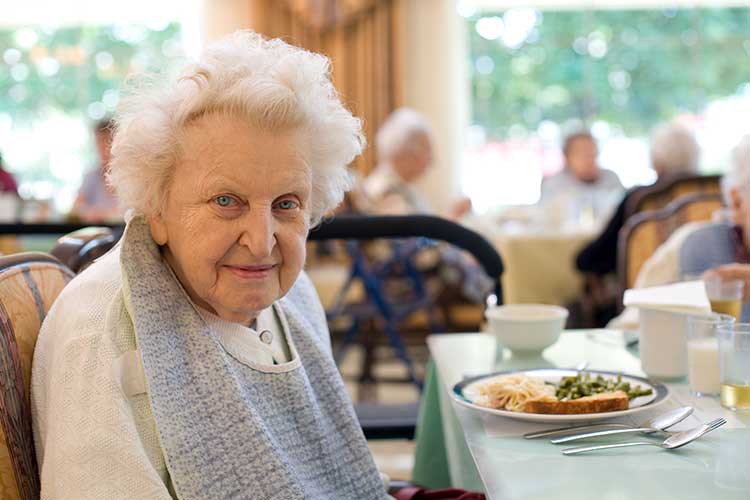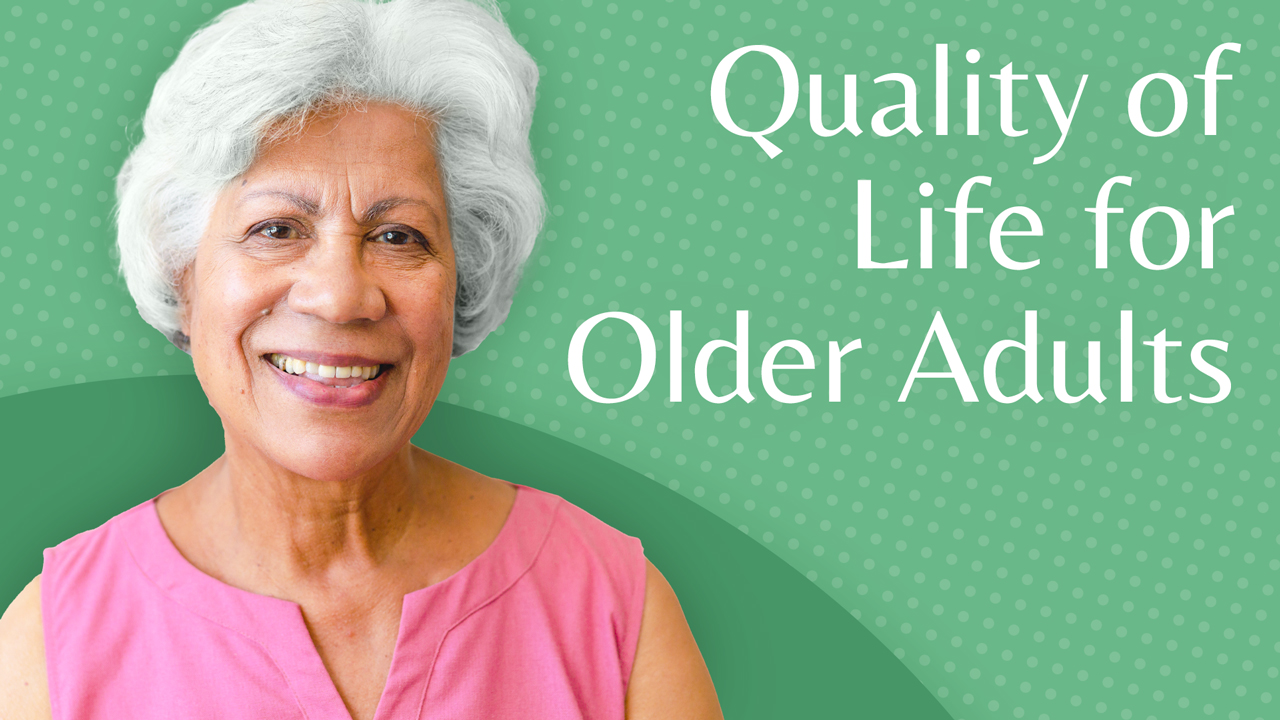The term quality of life is multidimensional and highly subjective. At a basic level, it describes the ability of an individual to be healthy and comfortable and participate in life events (Jenkinson 2024).
In healthcare, quality of life comprises emotional, physical, material and social wellbeing (Jenkinson 2024).
Quality of Life Under the Strengthened Aged Care Quality Standards
Quality of life is an essential concept in the strengthened Aged Care Quality Standards.
Under Standard 1: The Person - Outcome 1.3: Choice, independence and quality of life:
- Action 1.3.5 states that older people should be supported to live the best life possible by having their goals and preferences recognised and being able to take positive risks that encourage autonomy and quality of life.
- Action 1.3.6 requires providers to document, monitor and address changes to older people’s quality of life.
(ACQSC 2024a)
Under Standard 3: Care and Services:
- Outcome 3.1: Assessment and Planning
- Action 3.1.1 requires providers to put assessment and planning systems into place that optimise quality of life.
- Outcome 3.2: Delivery of care and services
- Action 3.2.1 states that older people should receive culturally safe, trauma-aware and healing-informed care and services that optimise quality of life.
- Action 3.2.2 highlights the importance of older people receiving care and services that optimise quality of life, in line with their preferences.
- Action 3.2.4 aims to ensure older people receive timely and appropriate referrals where needed to support quality of life.
(ACQSC 2024b)
Standard 4: The Environment highlights how the service environment’s maintenance and design can improve quality of life (ACQSC 2024c).
Standard 5: Clinical Care discusses how appropriate, effective clinical care can optimise an older person’s quality of life (ACQSC 2024d).
Standard 6: Food and Nutrition recognises the importance of food, drink and the dining experience on older people’s quality of life (ACQSC 2024e).
Under Standard 7: The Residential Community - Outcome 7.1: Daily living (Action 7.1.1), older people should be supported to participate in activities of their choosing to maintain their quality of life (ACQSC 2024f).
What Does Quality of Life Encompass?
As stated, quality of life is a broad and subjective concept that depends upon an individual’s perceptions, values and goals. In aged and home care settings, quality of life can mean:
- Being treated with dignity and respect
- Feeling safe and secure
- Being supported and encouraged to raise any concerns they may have
- The absence of uncomfortable physical symptoms (e.g. pain, nausea)
- Emotional wellbeing
- Physical and cognitive ability to function in daily life
- Maintaining meaningful and close interpersonal relationships
- The ability to participate in and enjoy social activities
- Financial satisfaction
- Sexuality, body image and intimacy
- Having the ability to make informed decisions
- Maintaining adequate hydration and nutrition
- A dining experience that allows for variety, choice and comfort
- The ability to maintain independence (if possible)
- Having a sense of purpose and identity.
(COTA 2018 Australia; Stefanacci 2024)

It is also important to be aware that a client’s values and perspectives are not static and may change over time (Stefanacci 2024).
What can Negatively Affect Quality of Life?
In addition to understanding and providing what clients require in order to maintain quality of life, it is also important to identify factors that may adversely affect their quality of life. These factors may not necessarily be anticipated before they arise (Stefanacci 2024). Examples include:
- Chronic physical or mental illness
- Institutionalisation
- Reduced life expectancy
- Cognitive impairment
- Disability
- Chronic pain
- Social isolation
- Impaired functional status
- Previous experiences with healthcare.
(Stefanacci 2024; Browning & Thomas 2013)
How to Assess Quality of Life
The subjectivity of an individual’s quality of life means that no single model can be used to assess it. Properly understanding someone else’s perspective requires a thoughtful conversation wherein the person can express their preferences (Stefanacci 2024).
Older people experiencing cognitive impairment should also have an avenue through which to express their thoughts, even if that means using simple questions or inviting family members to participate in the conversation (Stefanacci 2024).

How can Care Providers Ensure Quality of Life?
- Physical and mental health
- Spiritual, emotional and social life
- Relationships
- Attitudes
- Cultural values
- Family and community.
(ACQSC 2023)
Providing care that facilitates quality of life means older people should feel like they have adequate control, privacy and the ability to contribute to their own lives; simply offering opportunities is not enough on its own without providing the ability for choice (ACQSC 2023).

Test Your Knowledge
Question 1 of 3
True or false: Facilitating a high quality of life means giving clients the ability to make choices.
Topics
References
- Aged Care Quality and Safety Commission 2024a, Standard 1: The Individual, Australian Government, viewed 5 April 2024, https://www.health.gov.au/resources/publications/strengthened-aged-care-quality-standards-august-2025?language=en
- Aged Care Quality and Safety Commission 2024b, Standard 3: Care and Services, Australian Government, viewed 5 April 2024, https://www.health.gov.au/resources/publications/strengthened-aged-care-quality-standards-august-2025?language=en
- Aged Care Quality and Safety Commission 2024c, Standard 4: The Environment, Australian Government, viewed 5 April 2024, https://www.health.gov.au/resources/publications/strengthened-aged-care-quality-standards-august-2025?language=en/environment
- Aged Care Quality and Safety Commission 2024d, Standard 5: Clinical Care, Australian Government, viewed 5 April 2024, https://www.health.gov.au/resources/publications/strengthened-aged-care-quality-standards-august-2025?language=en
- Aged Care Quality and Safety Commission 2024e, Standard 6: Food and Nutrition, Australian Government, viewed 5 April 2024, https://www.health.gov.au/resources/publications/strengthened-aged-care-quality-standards-august-2025?language=en/food-and-nutrition
- Aged Care Quality and Safety Commission 2024f, Standard 7: The Residential Community, Australian Government, viewed 5 April 2024, https://www.health.gov.au/resources/publications/strengthened-aged-care-quality-standards-august-2025?language=en/residential-community
- Aged Care Quality and Safety Commission 2023, Guidance and Resources for Providers to Support the Aged Care Quality Standards, Australian Government, viewed 5 April 2024, https://www.agedcarequality.gov.au/resources/guidance-and-resources-providers-support-aged-care-quality-standards
- Browning, C & Thomas, S 2013, ‘Enhancing Quality of Life in Older People’, InPsych, vol. 35 no. 1, viewed 5 April 2024, https://www.psychology.org.au/publications/inpsych/2013/february/browning
- COTA Australia 2018, Measuring Quality and Consumer Choice in Aged Care, COTA, viewed 5 April 2024, https://www.cota.org.au/wp-content/uploads/2018/09/Quality-and-Choice-in-Aged-Care-Project-Report-FINAL-Feb-2018.pdf
- Jenkinson, C 2024, ‘Quality of Life’, Encyclopedia Britannica, viewed 5 April 2024, https://www.britannica.com/topic/quality-of-life
- Stefanacci, RG 2024, Quality of Life in Older Adults, MSD Manual, viewed 5 April 2024, https://www.msdmanuals.com/professional/geriatrics/aging-and-quality-of-life/quality-of-life-in-older-people
 New
New 
